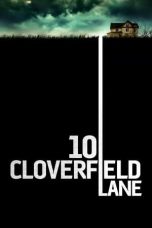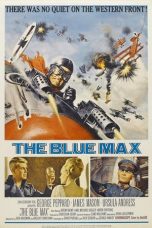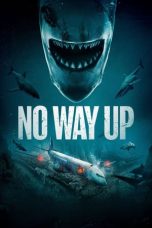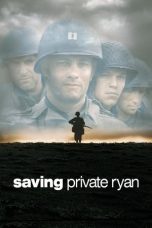- Source: Rusty Lane
Rusty Lane (born James Russell Lane; May 31, 1899 – October 10, 1986), was a college professor who in his forties left academia to become a professional actor. He appeared in several Broadway productions during the 1940s and 1950s, including three years as an original cast member for Mister Roberts. He was in the original cast for another Tony award-winning play, The Desperate Hours. Lane also took up screen acting, performing in 21 films and making hundreds of televisions appearances from 1950 up through 1973, including as the star of the TV series Crime with Father, and as a regular cast member of the daytime serial The Clear Horizon.
Early life
James Russell Lane was born in Chicago, Illinois, the younger of two children for Mack M. Lane, a school teacher and principal, and Cora Barr Lane. As a young man he used his middle name in preference to his first, but otherwise was known by his nickname "Rusty". Later, as a teacher and professor he used "J. Russell Lane" for formal situations.
By age 17, his family had moved to suburban Crete, Illinois, from where Lane enlisted in the U.S. Army on July 17, 1917. Sent for training with the Illinois National Guard at Champaign, Illinois, he was assigned to the US 124th Field Artillery Regiment. By October, his regiment had moved to Camp Logan in Houston, Texas. He received a medical discharge on December 24, 1917, due to a foot injury. He then worked as a teacher in Pisgah, Iowa.
College
Lane was a student at the University of Illinois from 1922 thru 1926 when he graduated. He played football his first two years under coach Bob Zuppke, was a member of the 1923 championship team with Red Grange, but lost part of that season due to academic probation. His later college years were focused on theater and public speaking under the mentorship of Professor W. C. Troutman. He was elected president of the college dramatic society, took part in plays, and in his senior year represented Illinois at an interstate public speaking competition held in Madison, Wisconsin.
Academic career
After graduation Lane took up a teaching position in Iowa City, Iowa. Lane taught public speaking at Iowa City High School, served as its dramatics director, and also took part in theater productions at the University of Iowa. After one year he left to take up a position at La Crosse State Teachers College (now the University of Wisconsin–La Crosse). He spent two years there, teaching public speaking and staging college plays, then was selected by his former college mentor, W. C. Troutman, who was now at the University of Wisconsin, to be business manager for the university theater in Madison.
Lane would spend nearly fourteen years at the University of Wisconsin, managing the university theater and teaching public speaking. During this time he brought many top stage stars to the university for performances, and helped develop some future stars (Don Ameche, Tom Ewell, Uta Hagen, Don Fellows, Cy Howard) as well. He also oversaw the opening of the new Wisconsin Union Theater, at which in April 1942, Knickerbocker Holiday, the one hundredth production of his college directing career was staged. Lane resigned his position the same month. After several months doing radio and stage work in New York City, he took a position with the American Red Cross, producing entertainment for servicemen in England.
East Coast career
= Stage work
=While in London, Lane persuaded playwright Maxwell Anderson to allow the US Army to stage his play The Eve of St. Mark as a non-profit production. Lane supervised the production, which was mounted in the Scala Theatre and featured American soldiers and Red Cross workers in the cast. Lane returned to New York to direct Anderson's new play Storm Operation. Rehearsals began in November; by December 13, 1943, the play had its first tryout in Baltimore, followed by a week in Pittsburgh. However, in between tryouts Lane was replaced as director. Lane then went into the cast of Decision by Edward Chodorov, which had its first tryout on January 21, 1944, at the Wilmington, Delaware Playhouse. It premiered at the Belasco Theatre on February 2, 1944, with Lane drawing mild praise for his supporting role from The New York Times. John Chapman of the New York Daily News was more generous, writing: "Rusty Lane, a drama professor and director, makes his acting debut in the role of a lawyer, and proves that self-taught or not, he is well taught".
Decision ran until June 17, 1944, after which Lane went into the cast of Lower North by Martin Bidwell. A weak war training comedy drama, it closed after just nine days. Lane was then cast in his first screen role, Now It Can Be Told, a movie being made in New York by Louis de Rochemont for 20th Century-Fox. The film was released as The House on 92nd Street in late 1945 to generally good reviews. In May 1945 Lane was hired by the USO to produce and direct stage plays that its various entertainment troupes could take to overseas bases. During the next year he would craft five productions of popular plays for USO companies.
Lane next performed in Bathsheba by Jacques Deval, which opened March 26, 1947 and starred James Mason in his Broadway debut. Lane portrayed Joab, for which he received mild commendation from the Daily News critic, who was a bit hard on the two leads, James Mason and Pamela Kellino. The Brooklyn Daily Eagle said Deval's characters "seem to have gotten into his play simply because some clothes had come from a costumer's and needed men and women to fill them". The play closed on April 19, 1947. Two years later Lane told Earl Wilson "Oooh, what a stinker that one was!"
The Experimental Theatre presented Bertolt Brecht's Galileo in a limited engagement of six performances from December 7 through December 14, 1947. The play was translated by Charles Laughton, who would also star as the Italian astronomer. Lane was part of a supporting cast that included Joan McCracken, Wesley Addy, and John Carradine, under the direction of Joseph Losey.
= Mister Roberts
=After doing a trio of unsuccessful plays, Lane was cast in a critical and popular hit, the 1948 Tony Award winner Mister Roberts. This had an opening tryout at the Shubert Theatre in New Haven, Connecticut on January 23, 1948, where the reviewer predicted immediate success on Broadway and mentioned Lane favorably. Another tryout was mounted at Philadelphia's Walnut Theatre, before the play premiered on Broadway at the Alvin Theatre on February 18, 1948.
Lane's character, Chief Johnson, was a supporting role, the first on stage each night. However, he also understudied the lead role of "Doc", played by Robert Keith. When Keith was in an auto accident during May 1948, Lane took over as Doc until Keith was able to return, while his own part was played by ensemble cast member Robert Keith Jr. Besides Doc, Lane was also understudy for the role of the Captain.
Though his evenings were committed to Mister Roberts, Lane was able to utilize his days to do a number of radio broadcasts for the anthology series Grand Central Station. He also had time to perform in his second movie, Johnny One-Eye, for a segment filmed near Washington Square Park during late July 1949. And he also moonlighted during June 1950 for his first known television performance on Hands of Destiny.
After almost three years of playing Chief Johnson, Lane was promoted to the lead role of the Captain, taking over from William Harrigan, who left in November 1950 for an RKO movie contract. Lane's name now appeared in the newspaper ads for the play along with the other three principals. He would play that part on tour even after the original Broadway production closed at the Alvin Theatre during January 1951 and formed a second road company. Lane's involvement with Mister Rogers finally came to end when the road company closed during May 1951. According to columnist Irvin Farman, Lane had played in "1,382 performances... He was the only member of the cast who played every Broadway and road tour performance, playing the chief 1,063 times, Doc 56 times, and the captain 263 times".
= Crime with Father
=With no stage commitments at hand, Lane moved into television acting during 1951. Besides doing anthology shows, he also starred in his own mystery series, Crime with Father. This program, debuting on ABC television on August 31, 1951, had him as police homicide detective Jim Riland, a widower whose daughter Chris Riland (Peggy Lobin) often aided and complicated his investigations. According to columnist Terry Vernon, the show was filmed on actual streets without using stock clips or background projections, and showed the home life of the Rilands. The New York Times review of the first episode said it was "...an obviously low-budgeted series, has a far better than average quality of production, even if the pistol shots still sound like cap pistols".
The series lasted for 21 episodes, its final original broadcast coming on January 18, 1952. Because it was a filmed series, it played longer in some markets. After it ended, Lane went right back to doing anthology series. He also did a recurring character called Porphory Pete on the family-orientated Captain Video and His Video Rangers. This was a live daily science-fiction program on the DuMont Television Network. Porphory Pete was a "raffish, interplanetary prospector" who was friends with Captain Video. A newspaper article by Robert Downing, who played a villain, establishes that Lane's participation in the daily show may have lasted for weeks, however, very few actual episodes can be identified today. Another television program for which Lane had at least a recurring, if not a regular role, was a short-lived NBC fantasy-adventure series, Operation Neptune.
= Return to stage
=Stockade was a grim play, "a sobering drama" according to Brooks Atkinson, taken from chapters of From Here to Eternity that were left out of the film version. Atkinson praised the "vivid characterizations" of Lane and other actors, but Louis Sheaffer felt the play was "drab" and "uninspired", while John Chapman called it "cheerless, sadistic and pointless". The play flopped quickly at the Off Broadway President Theatre during early 1954, and Lane went on with doing anthology series on television.
However, the number of television episodes he did declined during the second half of 1954. The New York-based DuMont Television Network was failing, and the bulk of new production work was moving towards Hollywood. Lane, still resident in New York City, now filled the gaps between TV spots with lower-paying regional theater work. Towards the end of December 1954 he was cast in what would be his final Broadway performance.
= The Desperate Hours
=The Desperate Hours was adapted by Joseph Hayes from his novel. The story concerns a suburban family of four whose quiet home is invaded by three escaped convicts. Staged by Robert Montgomery, it starred Karl Malden and Nancy Coleman as the parents, with Paul Newman as the convict leader. The play had its first tryout at the Shubert Theater in New Haven, Connecticut on January 6, 1955.
It then went to Locust Street Theatre in Philadelphia, on January 12, 1955, for a highly praised three-week run.
The play opened on February 10, 1955, at the Ethel Barrymore Theatre on Broadway. Lane's role in this play as a police lieutenant was smaller than his parts in Mister Roberts and Stockade, and reviewers mention him only in passing. Besides an excellent cast, taut writing and staging, the production had an extraordinary set design by Howard Bay.
After 212 performances, The Desperate Hours closed on Broadway on August 13, 1955, and a road company was sent out to the West Coast that included Lane and his wife Sara Anderson. By late October 1955, Lane was back in New York for filming of The Harder They Fall, but he returned to Los Angeles for Beyond a Reasonable Doubt in March 1956.
West Coast career
= Films and television
=James Mason cast Lane for Bigger Than Life, which was filmed during May 1956 under the working title of One in a Million. Going forward, all of Lane's screen work would be produced in Los Angeles. Lane made ten films during 1957–1958, but the quality of the pictures trailed off considerably in the latter year, and it would be 1963 before he made another. His television work expanded during that same period, with some guest star parts in narrative series. However, a great many of his small screen roles were character bits, often as a sheriff or judge or police detective.
= The Clear Horizon
=Lane was cast in a major role for the CBS daily daytime drama, The Clear Horizon, starting in July 1960. This show followed an Army officer, Roy Selby (Ed Kemmer) and his wife Anne (Phyllis Avery) after his transfer to an Army space program test site near Cape Canaveral, Florida. Third-billed Lane played Harry Moseby, a sergeant formerly under Selby's command and godfather to his young son. Moseby was on his second marriage, and his wife Frances (Eve McVeagh) was discovering she didn't care for Army life. The show's creator and head writer, Manya Star, a former WAVES officer, was adamant the program was not a soap opera: "The emphasis is on the men, and the women know how to cope with things, instead of wringing their hands". Among the show's secondary storylines was that of Corporal Davis (James Edwards), a Negro soldier who fights to get into Officer Candidate School, and the difficulty in finding housing for his wife after he does. Another storyline concerned a Jewish army officer (Michael Fox) who was married to a French Catholic woman (Gerry Gaylor).
The show was filmed, not broadcast live. Six episodes were made each week, to build up a reserve for vacations. During March 1961 CBS stopped broadcasting original episodes; however, stations behind the network feed used filmed copies to keep showing it into April. Columnist Allen Rich queried CBS VP for Daytime Programs Bruce Lansbury about the switch from soap operas like Clear Horizon and Full Circle to game shows. Lansbury claimed the network was trying to provide entertainment instead of displaying other people's problems, and that reader mail favored the changes. Less than a year later, a new CBS VP for Daytime Programs, Lawrence White, announced that The Clear Horizon would resume new episodes on February 26, 1962, citing popular demand for its return.
The second life of The Clear Horizon lasted only until June 15, 1962, when it was dropped from the CBS daytime schedule in favor of a traditional soap opera, The Brighter Day, which was expanded from 15 minutes to a half-hour. This was in spite of a letter-writing campaign to CBS by fans of The Clear Horizon.
= Later life
=Television continued to be Lane's main source of acting work during the 1960s. He made only five films during that decade, but performed in 64 television episodes, not even counting The Clear Horizon. He had a small recurring role as a court clerk on the legal drama Sam Benedict, and another as police Sgt. Murchison on 87th Precinct. Lane's performing work wound down to just five television episodes during the early 1970s. His last known acting job was for an episode of Gunsmoke in 1973.
Lane lived for another thirteen years after retiring.
Personal life
At age 43, Lane stood 5'8 1/2" (174 cm) tall, weighed 160 pounds (72.5 kg), and had gray eyes and brown hair.
While teaching at Iowa City High School in 1926, Lane met Laura Koch, who was also a teacher there. They were married on August 1, 1928, at her parents' home in St. Ansgar, Iowa. During their fifteen years of marriage they had two daughters, Laura Lee Lane and Carol Anne Lane, who were occasionally cast in University of Wisconsin stage productions. They were divorced in May 1946.
Columnist Whitney Bolton reported that whenever Lane found himself in a long-running stage production, he'd populate his theatre dressing room with wildlife. During Mister Roberts it was cages of hamsters, while for The Desperate Hours he had a large aquarium stocked with Apistogramma from Venezuela.
Lane had often cast two sisters from Madison named Gloria and Sara Anderson while staging plays at the university during 1940–1941. Gloria stayed with the university, but Sara went on to New York where she found stage work on Broadway. Several years later Lane also went to New York, and eventually met up with Sara Anderson again when both were in Storm Operation. Despite a twenty-year age difference, they married on May 21, 1947. Their first child, Susan Russell Lane, later became an actress under the stage name Sara Lane, though she was called "Russell" by her family. They also had two other children together, Walter and Margarethe. After their move to California, they lived at a cabin in Topanga Canyon, near the south entrance close to the ocean.
Stage performances
Listed by year of first performance, excluding student productions
Radio performances
Filmography
Film (by year of first release)
Television performances 1950–1959
Listed in original broadcast order
Television performances 1960–1973
Listed in original broadcast order
Notes
References
External links
Rusty Lane at IMDb
Kata Kunci Pencarian:
- Permaisuri Camilla dari Britania Raya
- Daftar tokoh Disney
- Brad Pitt
- Nick Jr.
- Mugiyono Kasido
- Talladega Superspeedway
- Filmografi Brad Pitt
- Aktor Terbaik (Penghargaan Satellite)
- Daftar film Amerika tahun 2008
- Movie 43
- Rusty Lane
- Sara Lane (actress)
- Life of Galileo
- The Mighty Casey
- The Rawhide Trail
- Alfred Hitchcock Presents season 2
- The Harder They Fall (1956 film)
- Alfred Hitchcock Presents season 3
- Johnny Tremain (film)
- Lane Tanner
The Blue Max (1966)
Licence to Kill (1989)
Dragons Forever (1988)
No More Posts Available.
No more pages to load.














